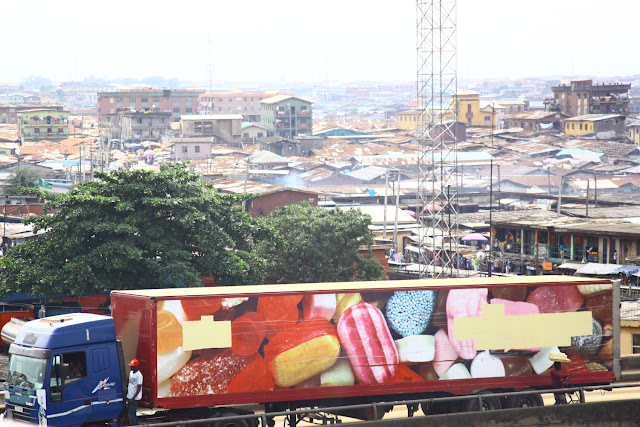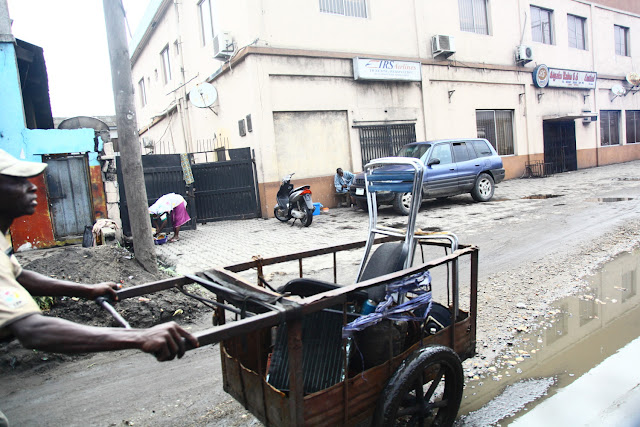turned into Stones Chief J. Agbo Ooye had been waiting in the shade of a large tree, in front of the National Museum of Esie, dressed in ceremonial costume with a velvet hat incrusted with crystal beads sown in the shape of his title and his name. He was sitting next to his wife on a bench, expecting our arrival. His wife, he would tell us later, was his best friend and she was actually demonstrating it by guiding his frail body from one place to another and guiding his hand when it came to sign autographs of his books. Chief Agbo Ooye is the author of two booklets on the Esie Stones. The first one, called A Personal Account of the Esie Stones is giving an overview of the differences between the scientific and the traditional interpretation of the Esie Stones. The second one is called the History of Esie and gives a brief account of Esie's history from the early settlement of Yorubas in various groups (Esie, Oro, Eku Apa, Igbonla, Edidi, Igbesi, etc...) to the present...










Comments
Post a Comment